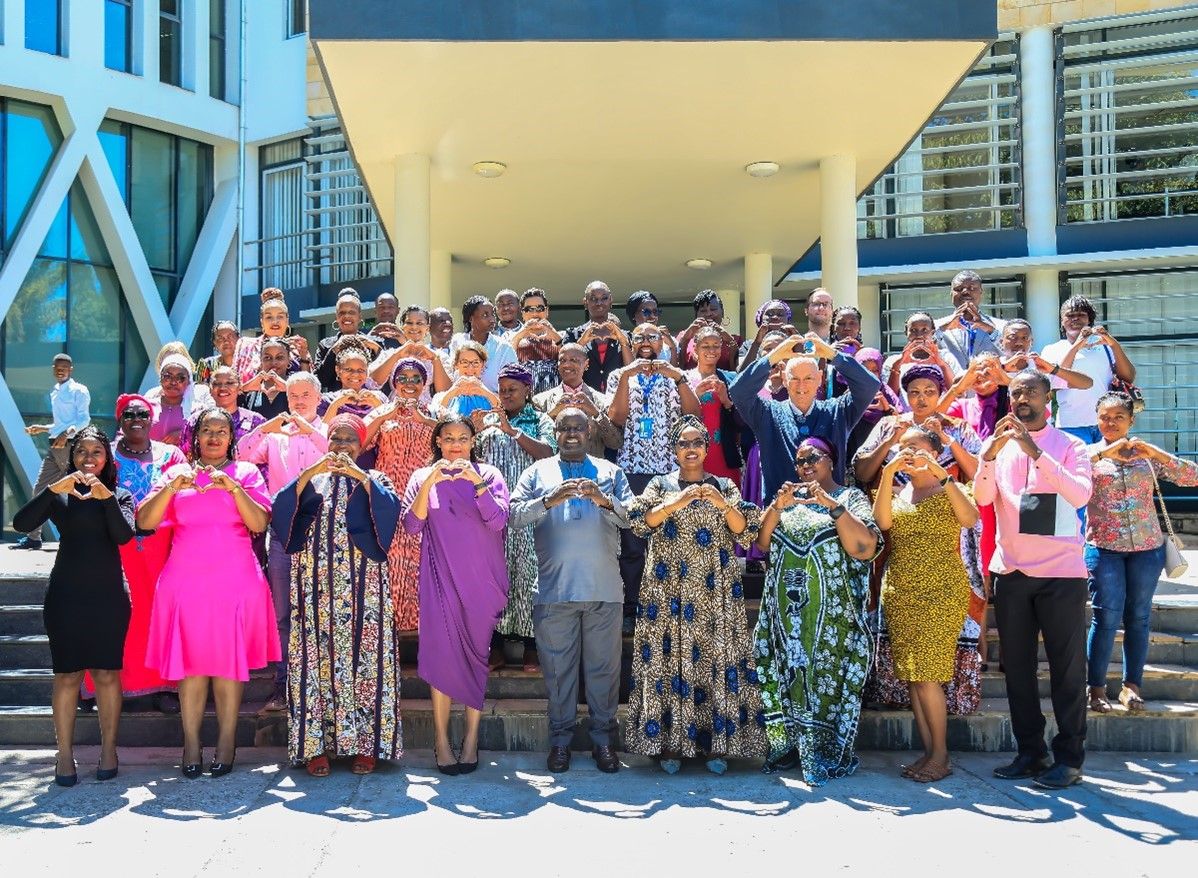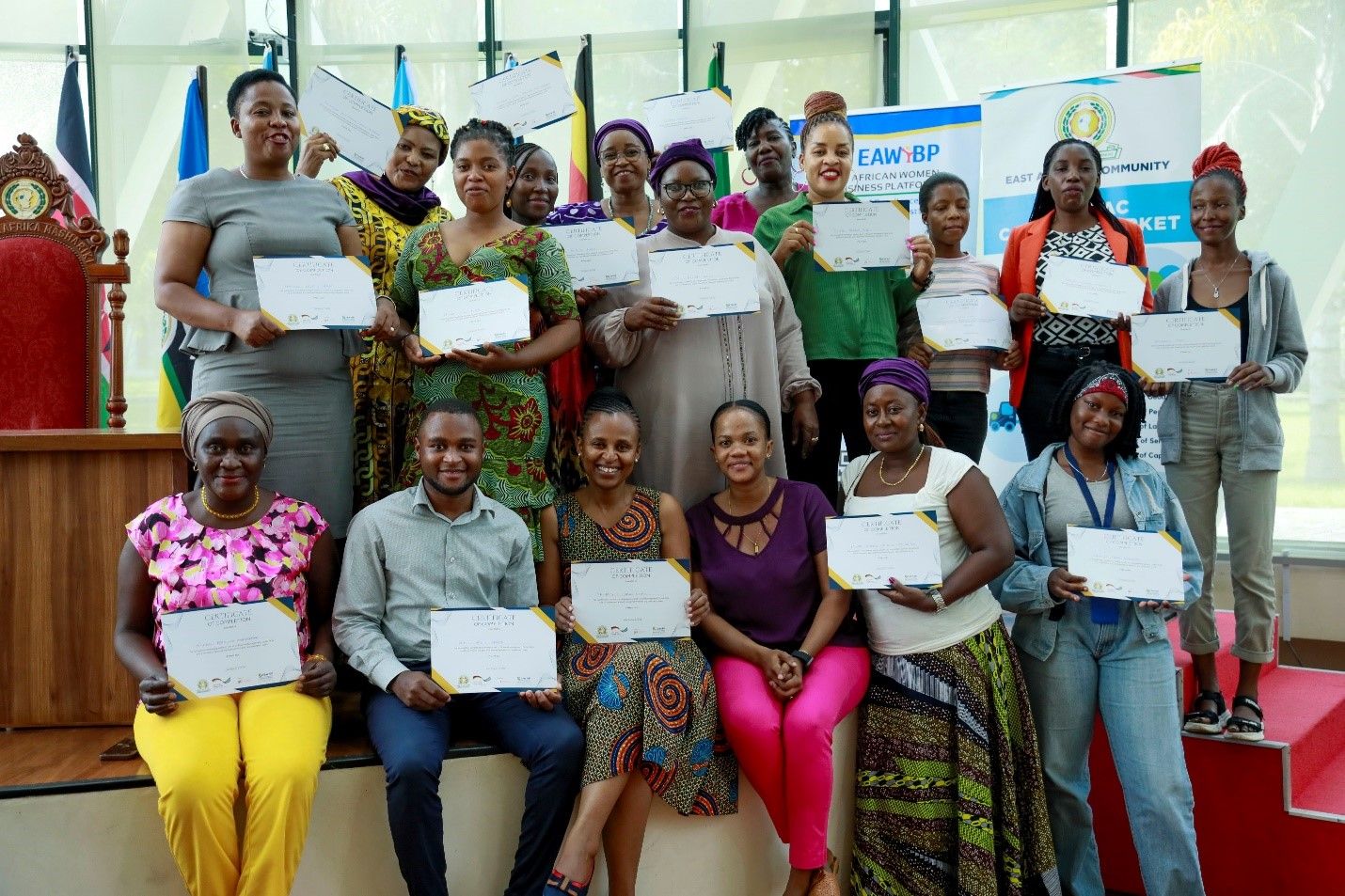On 8 March 2024, the EAC-GIZ Cluster Programme, in collaboration with the EAC Secretariat, East African Women in Business Platform (EAWiBP), East African Business Council (EABC), and representatives from regional private sector and civil society organisations, jointly celebrated International Women’s Day 2024, themed “Invest in Women: Accelerate Progress”, at the EAC Secretariat Headquarters in Arusha, Tanzania.
The theme emphasises the critical need to channel resources and support towards women's empowerment, particularly in the realm of financial inclusion.
The celebration was accompanied by a dialogue and capacity building sessions to discuss how women can effectively contribute to economic development in the region when included and involved in the engagements and decision making in all factors of social, political, and economic development, including in health, Finance and education. The session provided opportunities to advance women’s financial literacy and digital skills, identified entry points for advancing the investments in women and their role in financial markets in the EAC and provided an outlook for gender inclusion in pandemic preparedness, prevention and response in East Africa Region.
In her opening remarks, Dr Irene Charles Isaka, Director of Social Sectors, EAC emphasized the importance of promoting gender equality and inclusion. She highlighted the significance of the campaign theme "Inspire Inclusion" as a call to champion women's participation in all aspects of society. She noted that despite progress made in the region in promoting women’s inclusion in all aspects, challenges remain, including a significant funding deficit for gender-equality measures. She then underscored the need for individual and collective efforts to support women's inclusion in leadership, decision-making, and economic empowerment initiatives with a call for progressive mindsets and inclusive behaviors to further advance gender equality.
"Investing in women is not only a moral imperative but also a strategic imperative." In her remarks, Janice Kimaro, on behalf of the chairperson of EAWiBP, emphasised that women represent a vast reservoir of untapped potential and that her organisation was committed to empowering women entrepreneurs and professionals across the region. She added that by investing in women’s empowerment, the region can unlock unprecedented opportunities for development and peace.
Mr John Bosco Kalisa, CEO of EABC, uncovered the disparities in economic participation and empowerment between genders based on the gender gap report 2024. He noted a 21% pay gap and the underrepresentation of women in the Science, Technology, Engineering, and Mathematics (STEM) fields. He outlined the significant initiatives that EABC was championing in the promotion of women’s economic empowerment through the SMEs platform, the removal of NTBs, trade facilitation, and policy engagement. He concluded by urging the EAC Partner States to promote equality, inclusion, and diversity to accelerate gender parity, access to affordable finance, foster innovation, promote STEM education for girls, implement effective gender policies, share trade information, raise awareness on gender issues, and create a supportive environment for women and girls to benefit from the AfCFTA protocol on women and youth in Africa.
In his closing remarks, Mr Bjoern Richter, Cluster Coordinator, EAC-GIZ, commended the EAC Partner States for promoting female leaders at the Secretariat, demonstrating political will to promote inclusive decision-making and leadership. He urged relevant partners to support women's economic livelihoods, and financial and digital inclusion to ensure gender equality in all aspects. Bjoern also alluded to the work the EAC-GIZ programme does with the EAC Secretariat, regional private sectors, and civil society, contributing to closing the gender digital divide, ensuring an effective pandemic response within the EAC borders, and improving cross-border trade for women SMEs. Finally, he urged the EAC Partner States to increase their contributions towards inclusive gender-policy development, programming, and implementation to foster inclusivity in the region's economic development.
Find more information on EAWiBP here.
Find more information on the EAC-GIZ support to Gender, Community Development & Civil Society Mobilization here.
Find the IWD 2024 final report here.

